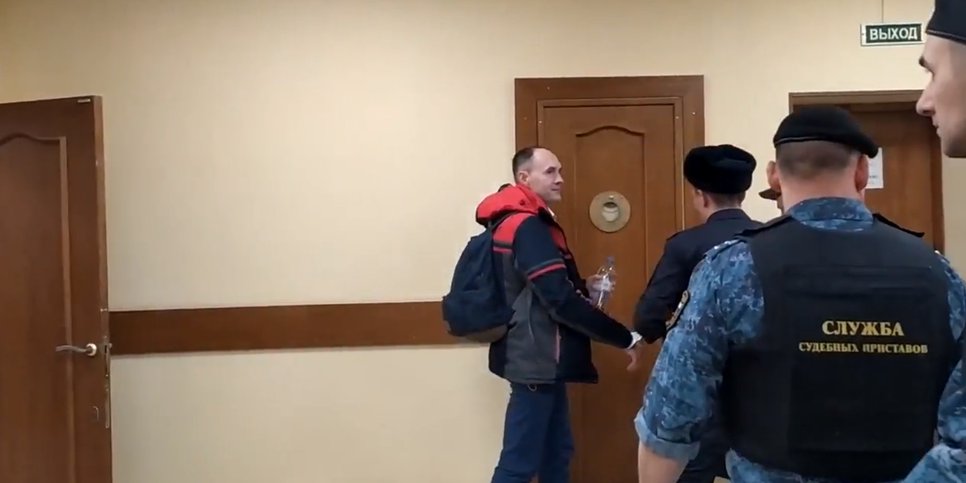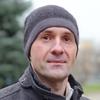The bailiffs take away handcuffed Aleksey Gerasimov. December 2023
The bailiffs take away handcuffed Aleksey Gerasimov. December 2023
Court Sentenced Aleksey Gerasimov, One of Jehovah's Witnesses from Kazan, to 6 Years in a Penal Colony for Talking About the Bible
TatarstanOn December 7, 2023, the Kirovsky District Court of Kazan finished considering the criminal case against Aleksey Gerasimov, one of Jehovah's Witnesses. Judge Anna Kryuchenkova sentenced the believer to 6 years of imprisonment for reading the Bible with friends. He is taken into custody in the courtroom.
In September 2022, law enforcement officers accused the believer of organizing the activity of an extremist organization (Article 282.2(1) of the RFCrC). The decision to initiate a criminal case stated that unidentified persons "involved individual residents of Kazan" in religious activity, "gave lectures and showed videos promoting the ideas of the religious organization of Jehovah's Witnesses." The investigation was conducted by A.A. Giniyatullin, investigator of the Investigative Department of the Investigative Committee of the Russian Federation for the Republic of Tatarstan; in January 2023 the case was submitted to the court, where it was considered for almost another year.
After hearing the opinion of the state prosecution, Gerasimov concluded: according to the prosecutor's office, in order to be innocent, he should have changed his religion in 2017. The defendant called such expectations insulting and considers it unacceptable to renounce his faith. He pleaded not guilty to extremism and has the right to appeal the verdict.
Gerasimov emphasized that he simply practiced the religion of Jehovah's Witnesses. According to the appellate ruling of the Supreme Court of the Russian Federation of June 17, 2017, in case No. APL17-216, when considering the case of liquidation of legal entities of Jehovah's Witnesses, "the court of first instance did not assess the legality of the religious beliefs of Jehovah's Witnesses and the ways of expressing them." Accordingly, the Supreme Court of the Russian Federation did not ban the practice of this religion in Russia.
"It is important to learn to accept prosecution as a 'normal' component of the life of modern Christians, since Christ warned about it," Aleksey commented on the criminal case for his faith.
According to Mariana Katzarova, the UN Human Rights Council Special Rapporteur on the situation of human rights in the Russian Federation, "Laws on anti-terrorism and anti-extremism... are used to limit freedom of expression... The law's definition of extremism consists of a long list of 'extremist activities', that has been progressively expanded. The broadness and vagueness of this definition has been criticized by the Human Rights Committee and the Venice Commission of the Council of Europe" (§§ 64, 65).

